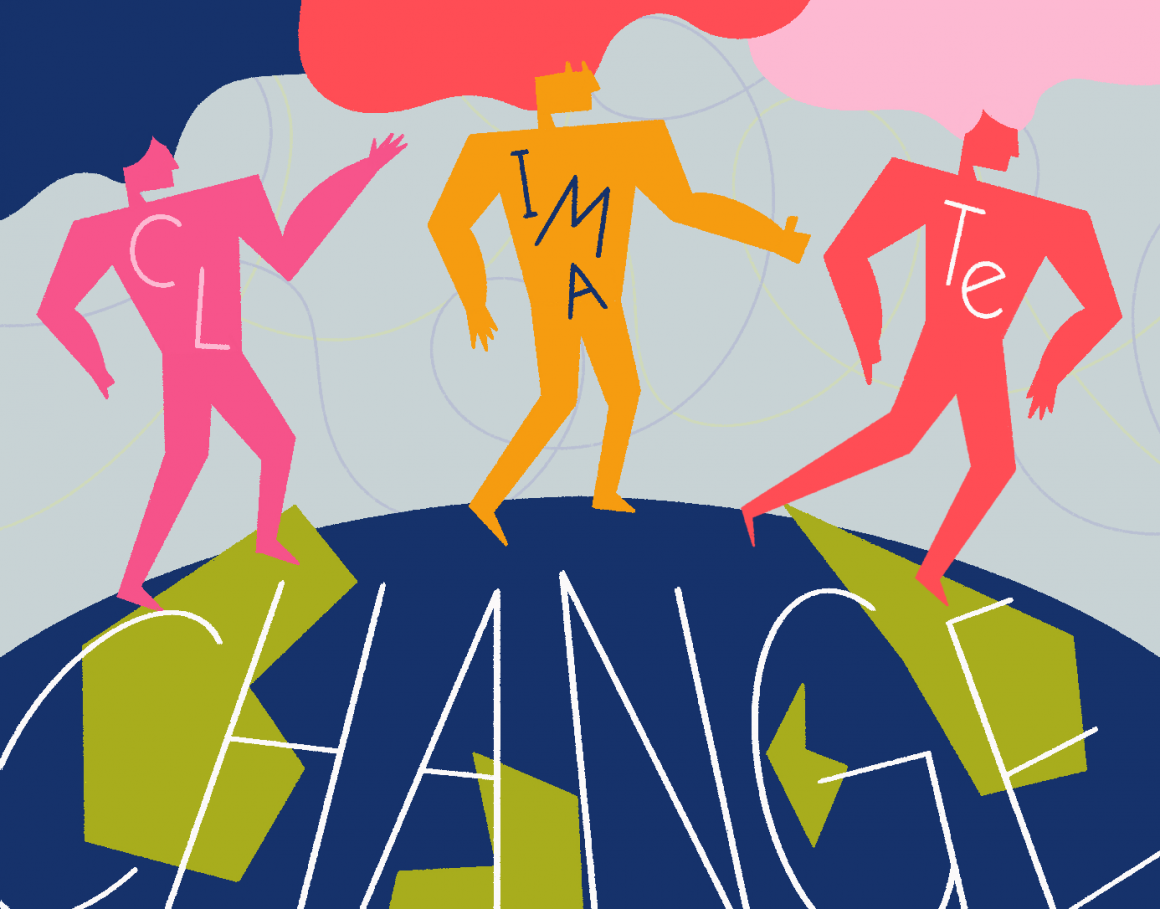
“Not a hopeless fight”: The stories of female climate change activists
By Nikayla Goddard, February 4 2020 —
This story began with a conversation with the community organizer for Permeate — a community organization originally founded to advocate for food sovereignty and social justice issues as a part of pushing for climate change actions such as the Green New Deal (GND). I had approached Permeate’s community organizer, a climate change activist and a mother who wished to remain anonymous, asking why photos and recordings weren’t allowed during a Green New Deal town hall.
Her simple response honestly shocked me — it was for her safety, and her children’s. She described to me how members of alt-right media would follow her and her children, taking photos and videos and sharing them on social media, saying she should have her children taken from her.
“Over 500 comments of people calling me ‘it’ and trying to find out who I was to have my kids taken away from me… I take them to protests all the time because it’s important to do so,” she explained. “Society should be built for kids to learn about how it actually works. There were other children there too.”
“I certainly wouldn’t want my children to be taken away from me for trying to advocate for clean water and air.” She hasn’t taken her children to a protest since.
Speaking with more women in the climate change activism sphere, it became clear this wasn’t just an isolated case. From being ignored and talked over at town halls, to having credentials and work dismissed as irrelevant, to death and rape threats, while the majority of climate change activists in Calgary are women, the majority of them face unparelled challenges when it comes to making their voice heard.
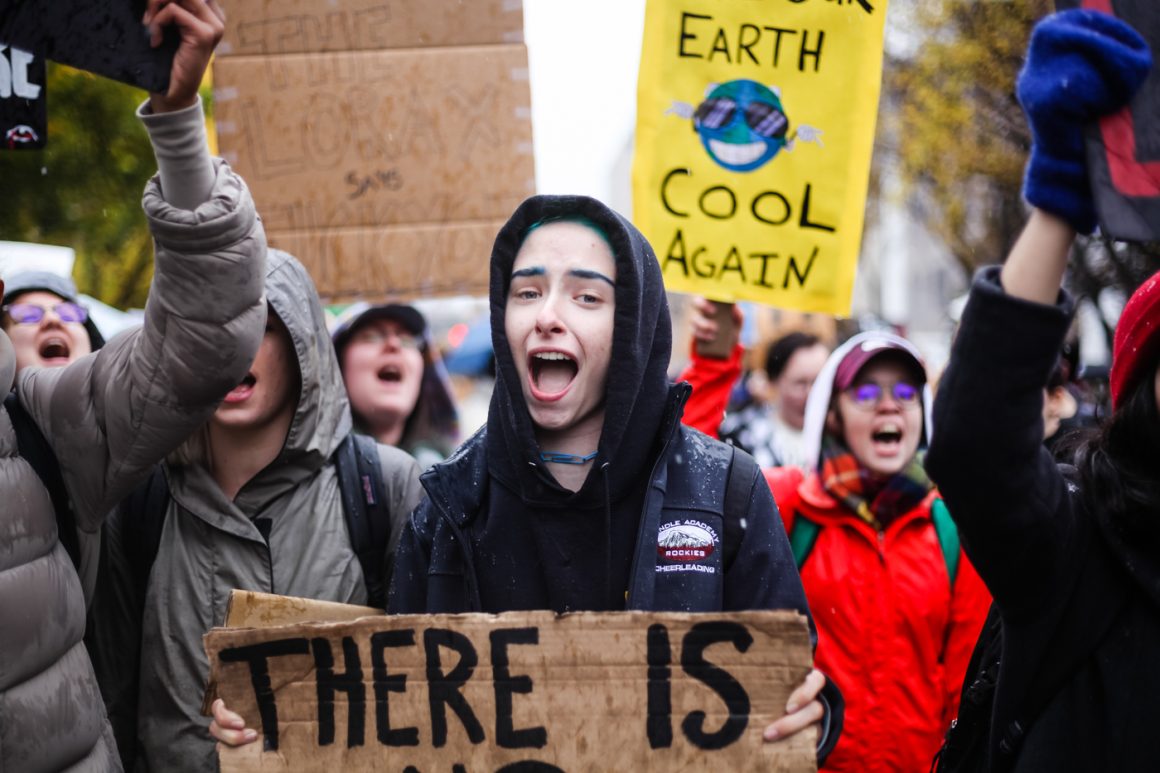
“We’ve been having the same conversations for so long. And it still keeps happening,” Permeate’s community organizer said.
“There’s always this feeling of anxiety and insecurity in the largely female-cohort activists doing environmental organizing. And it’s always violence from men. That’s the reality,” she said.
Talking with four female-identifying climate change activists in Calgary, they shared their stories about how they got involved with their work, the challenges they face and what they do to ignore or overcome those hurdles.
Permeate’s community organizer said she started climate and environmental organizing when she was 12 — she helped organize a town hall protest of a liquefied natural gas (LNG) plant.
She helped start Permeate last year, with the goal of a “community organization that pushed for food sovereignty and social justice issues in Calgary.” For Permeate, food is a necessary climate response in order to decouple from exploitative systems and build community. From there, Permeate began organizing GND town halls over the summer as a result of their dissatisfaction with the way the GND was pushed as green capitalism without any radical changes being made that would be effective.
“We knew we had to be really comprehensive about it,” she said, “especially with the children and the elderly because they are almost always left out of these programs, which are written for able-bodied men. Even the climate proposals, the kind of world that they are saying would be better for everyone, leaves the most vulnerable people out of the equation. If we want to actually successfully respond to climate, then we have to also make sure everybody is taken care of and educate healthy children.”
After speaking more about her problems with the alt-right media sharing videos of her children, she added that it has been primarily white men who ignore their development of a relevant GND.
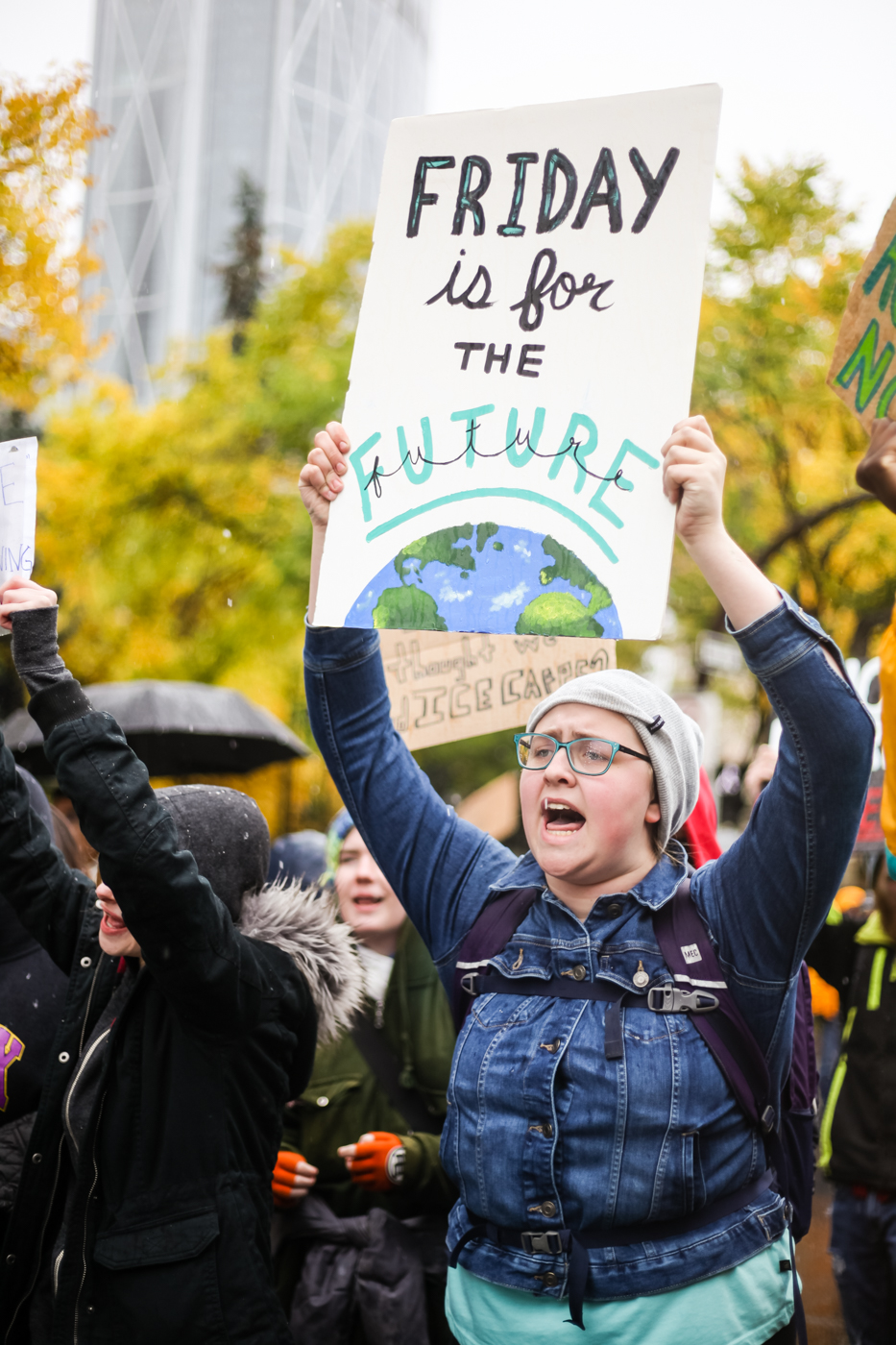
“They think there is this ulterior motive of trying to build a society good for children and older people. And it’s really this disbelief and this kind of condescension — ‘Don’t you know how the world really works?’ Yes — I live here!”
She added, “I am this older woman with grey hair and two kids and people still infantilize me, which I think is kind of interesting. It’s always disproportionately older white men.”
Aileen Ling’s involvement with Permeate began in September, and Ling saw her role as making sure some of the Green New Deal policies that were being developed were reasonable and had research behind it to support their documents. Originally in architecture, Ling was frustrated by construction waste and wanted to look into more sustainable designs and materials. She realized during her research that there were a lot of social and economic roadblocks to developing more sustainable solutions, and turned to looking at “design as a form of activism” through connecting communities with environmental technologies.
While she says her time at Permeate has been great, there have been environments in the past where she experienced discrimination as an Asian woman.
“There isn’t a lot of Asian female representation. It makes it difficult sometimes to make your voice heard, which can be frustrating, or takes more work to get taken more seriously,” she said.
Ling then explained how there is sometimes a “model minority” cultural expectation of her as a Chinese woman for her to be hard working and ask no questions, and how she sometimes falls into this trope. She says it’s not necessarily a bad thing, as there does need to be background people keeping an operation running. “But at the same time, it is difficult not having a lot of recognition for that,” she added.
Rose Jackson, an environmental science major at the University of Calgary, is a coordinator for Fridays for Future Calgary, as well as involved in Students For Direct Action and Anti-Austerity on campus and in the city. Jackson has been protesting for climate change action since March 2019 and coordinating events since July 2019, including helping organize events for international climate week and the Hands Off Our Education student protest on Nov. 29 at the McDougall Center.
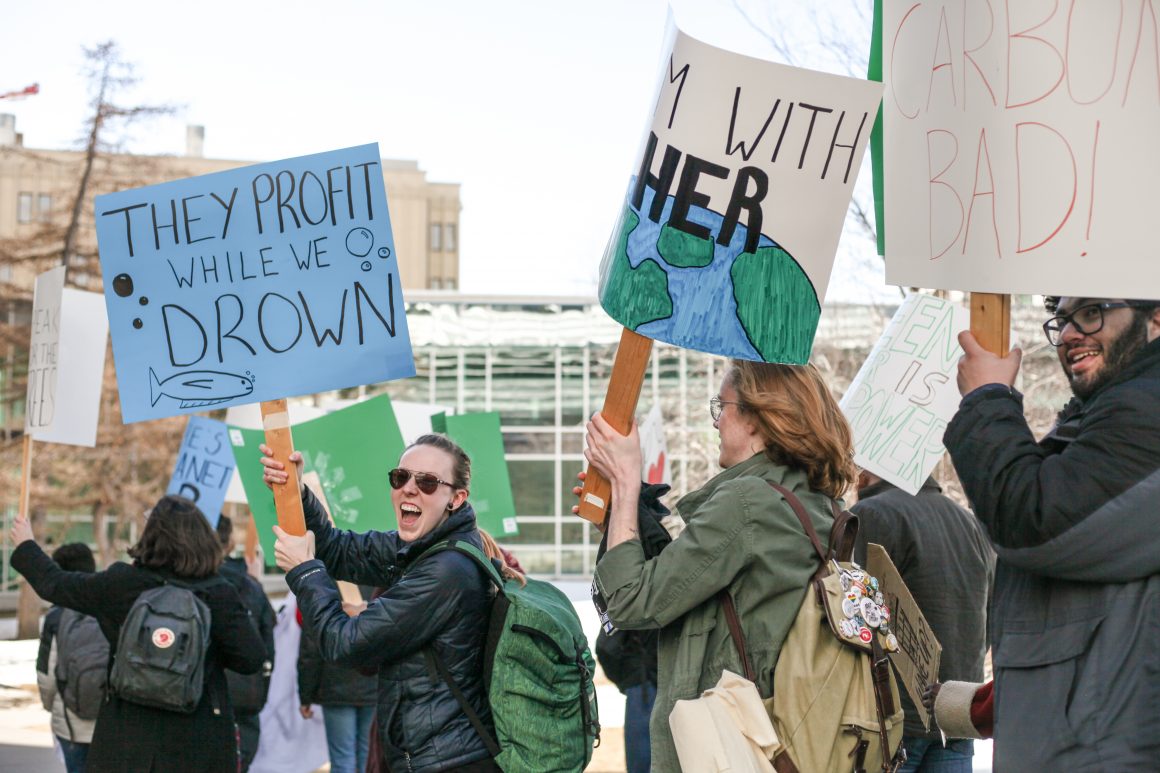
Jackson started out as a natural science student, switching her major halfway through her first year in order to get more involved with sustainable-centric activism.
“I thought we need to create more systemic change,” she explained. “Just doing it every so often […] isn’t enough. We need to be able to bring public awareness and hold our political leaders accountable, and that’s how my perspectives shifted last year.”
In terms of any challenges she has faced, Jackson responded, “People usually have a level of respect for me. I do try to commit myself to protesting every single week on Fridays. But there are instances where people try to overpower me or discredit my integrity and my knowledge as an environmentalist and as a student. I prefer not to bring those certain issues up as they no longer affect me, and I try to let those things go because at the end of the day those people don’t matter, and as long as we’re moving forward with the movement more people are coming on board. Despite who I am, where I come from and the surrounding counter-protesting and backlash, all that really matters is creating that community of strong leaders.”
Joy Shokeir, media outreach for Permeate, foregrounded her interview by explaining how the majority of climate change activists in Calgary are women, particularly young women. As a result, she noted how speaking with older men in the community in particular is a major struggle.
“Even if you have relevant experience in the area, you’re not the loudest voice in the room, and they’re going to talk over you,” Shokeir said. “Sometimes that is very difficult to get over and when I realized what was happening I was a little bit weirded out — they’re not listening or taking me seriously because I am a woman.”
Shokeir added she only has had this problem when in the community — not as much within the climate activism sphere.
“Most people are pretty accepting and open, and they appreciate different voices from people of different genders,” she said.
Shokeir claims that she has been concerned about the climate problem ever since watching An Inconvenient Truth in 2006 with her father.
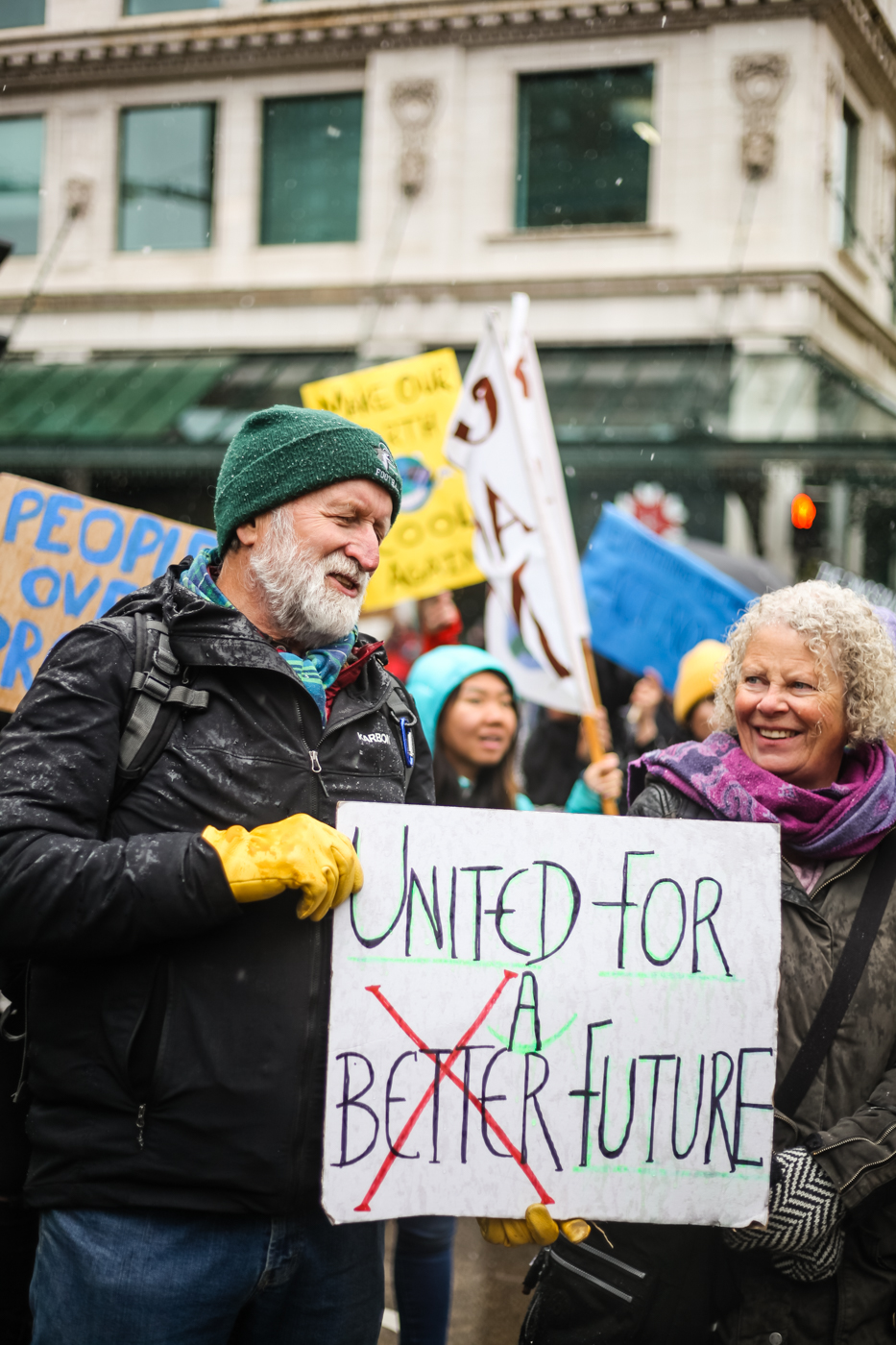
She elaborated, “I’ve been really a big advocate for environmental conservation. One of the big things I used to do was public education for work and trying to encourage people to be responsible for consumption and trying to be responsible for wildlife especially. Now I think I’ve gotten to the point with hearing the stories in the news and hearing what’s happening and how our leadership has failed to respond, I’ve felt a very strong urge to get out there and try to push for more equitable solutions to climate change.”
Frustrated, annoyed and angered with the ways they have been treated or ignored, they were eager to offer advice for climate change activists and women in leadership positions.
Having an ally is a great way to make sure your voice is being heard, Ling says. Her partner, who is a white male in the climate activism scene, sometimes “steps into a conversation to make room for me to state my opinion or bring up information […] which is helpful, but also kind of perpetuates that same thing.”
Ling says that she is still learning how to be comfortable making her voice heard, and her advice for female activists is “working in a whole bunch of different contexts to learn about perspectives of people” and “having that ally can be helpful.”
Jackson’s biggest piece of advice for women is to “Stand your ground. No one can tell you that you can’t do these sorts of things — that you shouldn’t be a leader, that you’re a liability, that you’re just some random face in the crowd, you don’t matter. That’s happened several times [to me], and eventually you’ll find your place and find where you need to be.”
Shokeir encourages women in the activism sphere to insist on being heard — speaking up even if it seems intimidating, or politely interrupt those who interrupted you to finish what you were saying.
But her biggest piece of advice is to “not get too discouraged,” she said. “Because some days it feels like you’re hitting a brick wall and you’re not accomplishing anything, but I know from experience that this feeling is actually inaccurate because you make lots of connections with people who are aligned with your goals, and there are many people working to try to solve these problems. It’s not a hopeless fight. And there’s still lots more that can be done.”
